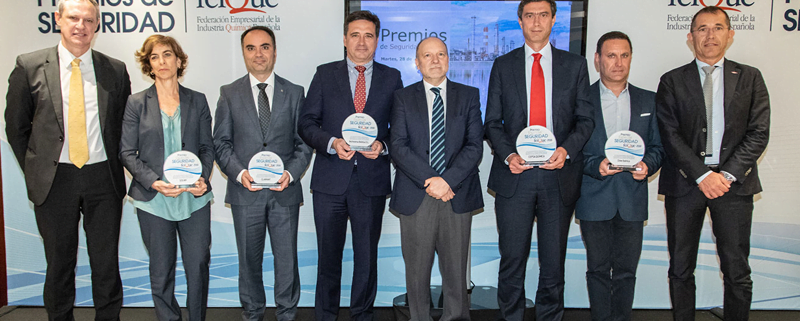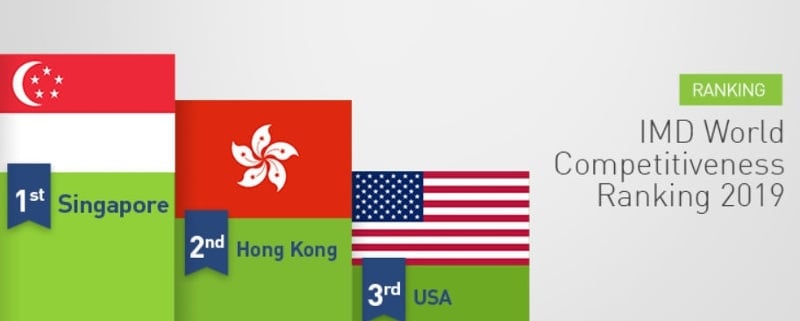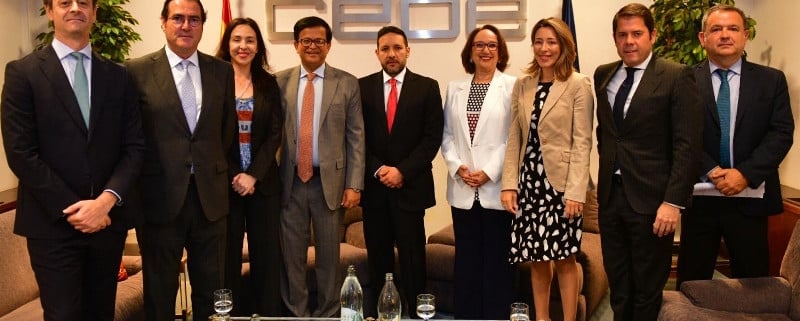The Minister of Education, Science and Innovation, Pedro Duque, has stood out during the inauguration of the II Meeting of Artificial Intelligence #AIlikeIT organized by AMETIC, the employers of the Spanish digital sector, that the Artificial Intelligence is a technological revolution to which Spain has to join, "since it is one of the disciplines that will contribute the most to changing the Spanish production model". Duque has indicated that the impulse of the Artificial Intelligence is a priority for the Government and, therefore, it is considered as a strategic action within the plans of the Executive with a specific call. "The IA will help us to make Spain more resilient to possible swings in the world economy," he underlined.
However, Duque has highlighted the importance of the national strategy on Artificial Intelligence being aligned with European programs. Likewise, Duque highlighted the potential that Spain has to be a reference in this area, and has made reference to several disciplines, such as medicine, where Artificial Intelligence is going to play a relevant role. Therefore, we must work to enhance any economic activity that can be driven and favored by the AI. However, the minister added that one can not lose sight of the ethics of its use and the quality of the jobs created.
Duque has also highlighted the need to encourage private investment in R & D. In this way, he pointed out that the Administration has to actively collaborate with universities and companies.
For his part, the president of AMETIC, Pedro Mier, has said that the employers want to be present in this revolution by actively contributing, since "Artificial Intelligence is the great lever of transformation for the reindustrialization of new businesses and opens a wide range of possibilities that will allow increasing productivity and competitiveness ". To do this, Mier said that we must work together with the Executive to make Spain and Europe a benchmark in terms of AI: "AMETIC works every day to be a point of union, meeting and support for the digital industry is strengthened and take advantage of the opportunities that artificial intelligence offers. "
The president of AMETIC, referring to the opportunities offered by the AI, has focused on the risks derived from its misuse. He agreed with the minister that the top-level issues that should surround the IA are ethics, sustainability and the quality of employment that is going to be created. "From AMETIC, we support and promote the good use of technology for the benefit of society."
To highlight the creation of quality employment resulting from digitalization, Mier has referred to a study presented by one of the partners of Digital Europe, where AMETIC is a member, on the "real impact that digitalization will have on the productive sectors". Against the belief that technology will end employment, the report reveals that, for every post destroyed, 3.7 new jobs will be created. With this objective, the president of AMETIC has commented that the employer's association is in talks with the Government to elaborate a similar study in Spain, since "it is very important to send solid and positive messages to society".
The coordinator of digital economy for Spain in the European Commission, Anna Armengol Torío, spoke of 'European plans for an EU world reference in Artificial Intelligence '. In this sense, he commented that the AI will play a crucial role in solving the social challenges of the future. "The European Commission supports that the AI is a vector of growth of the European economy and, therefore, a key part of the strategy of Europe." He has underlined the importance of investing in AI solutions for small and medium enterprises, but also in the training of people. "All Europe needs specialists from the ICT sector, especially in the area of AI," he said. Armengol has also made reference to the ethical component that the AI must have and concluded by emphasizing that it is necessary to "invest more and better in AI".
Applications of Artificial Intelligence
The II Meeting of Artificial Intelligence has also had the participation of the managing director and Head of Applied Intelligence at Accenture Spain, Portugal and Israel, Isabel Fernández, with the paper 'IA, but is it happening ?; the director of innovation and data of the Center for Telecommunications and Information Technology (CCTI) of the Generalitat of Catalonia, Lluis Anaya, on 'The Intelligent, Autonomous and Autonomous Public Administration; and the country manager of Google Cloud Spain, Isaac Hernández, who has spoken about 'Technological state. Solutions and disruptors IA '. Through their exhibitions, experts have highlighted the presence and application of Artificial Intelligence in everyday life and in various fields.
Also, the day has shown the developing of Artificial Intelligence for the industrial sector from practical cases. For the CEO of Tinámica, Enrique Serrano, to speak of IA is to refer to automation and decision making. In this sense, AI contributes to increase the optimization of production processes. In addition, the director of Big Data and Artificial Intelligence of GMV Secure E-solutions José Carlos Baquero, has presented 'Digital Twin and Artificial Intelligence: a perfect binomial for Industry 4.0'; the Deputy Director and Scientific Technological Director of Vicomtech, Jorge Posada, spoke of 'Computer Vision and Augmented Reality: Examples of IA application in Industry'; and the director of Technological Architecture and Digital Transformation of Repsol, Enrique Fernández Puertas, has focused on the 'Poliolefinas Analytical Optimization'.
Public Administration and Artificial Intelligence: challenges, opportunities, ethics and transparency
Enrique Legarda, director at Deloitte, within the scope of IT Advisory, has moderated the debate table 'Ethics, talent and values necessary for the transformation of organizations', with the participation of the Director of Marketing of Esri Spain, Pedro Torres, who has presented 'GeoSpatial Cloud: Practical applications of AI with geographic data'; the expert in Analytics and Partner of Deloitte, Macarena Estévez, who has talked about 'Improving the quality of life and longevity'; and the manager (FB AI Applied Research), of Facebook, Darío García, who has focused on 'Best practices on Ethics, AI and Privacy'.
The president of the Commission of Artificial Intelligence and Big Data of AMETIC and managing director of Accenture, Pedro Pérez, and Francisco Hortigüela, general director of AMETIC, have closed the event, thanking all the participants for their presence and support on this day.





